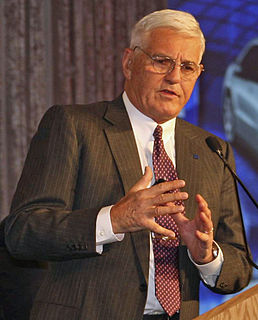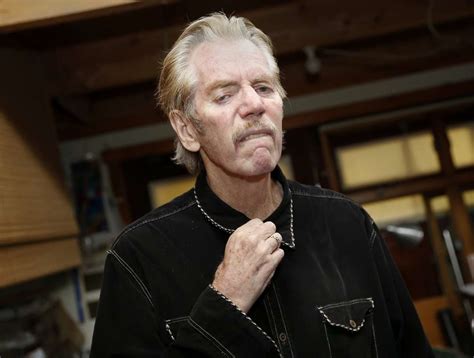A Quote by Charles Kettering
We suffer not from overproduction but from undercirculation. You have heard of technocracy. I wish I had those fellows for my competitors. I'd like to take the automobile it is said they predicted could be made now that would last fifty years. Even if never used, this automobile would not be worth anything except to a junkman in ten years, because of the changes in men's tastes and ideas. This desire for change is an inherent quality in human nature, so that the present generation must not try to crystallize the needs of the future ones.
Quote Topics
Anything
Automobile
Because
Change
Changes
Competitors
Could
Crystallize
Desire
Even
Except
Fellows
Fifty
Future
Generation
Had
Heard
Human
Human Nature
Ideas
Inherent
Last
Like
Made
Men
Must
Nature
Needs
Never
Now
Predicted
Present
Quality
Said
Suffer
Take
Tastes
Ten
Ten Years
Those
Try
Used
Wish
Worth
Would
Years
Related Quotes
Manlius ... took care in his invitations, actively sought to exclude from his circle crude and vulgar men like Caius Valerius. But they were all around; it was Manlius who lived in a dream world, and his bubble of civility was becoming smaller and smaller. Caius Valerius, powerful member of a powerful family, had never even heard of Plato. A hundred, even fifty years before, such an absurdity would have been inconceivable. Now it was surprising if such a man did know anything of philosophy, and even if it was explained, he would not wish to understand.
I would not even attempt to do a history of world television. I did a half dozen years where I was a juror at the Banff World Media Festival, and you get the best TV in the world there, and I was astounded at my ignorance. I would be watching a documentary made in Japan, and it was astounding, and I would never have heard of that otherwise. We're seeing more and more imports in the last years, and my dream for the next generation of TV is that somehow we get to tap into all of that.
When you buy a used car, you kick the tires, you look at the odometer, you open up the hood. If you do not feel yourself an expert in automobile engines, you bring a friend who is. And you do this with something as unimportant as an automobile. But on the issues of the transcendent, of ethics, of morals, of the origins of the world, of the nature of human beings, on those issues should we not insist upon at least equally skeptical scrutiny?
There were always men looking for jobs in America. There were always all these usable bodies. And I wanted to be a writer. Almost everybody was a writer. Not everybody thought they could be a dentist or an automobile mechanic but everybody knew they could be a writer. Of those fifty guys in the room, probably fifteen of them thought they were writers. Almost everybody used words and could write them down, i.e., almost everybody could be a writer. But most men, fortunately, aren't writers, or even cab drivers, and some men - many men - unfortunately aren't anything.
If you want to succeed in your life, remember this phrase: That past does not equal the future. Because you failed yesterday; or all day today; or a moment ago; or for the last six months; the last sixteen years; or the last fifty years of life, doesn't mean anything... All that matters is: What are you going to do, right now?
Look, Iraq and Iran would fight for years and years and years, it went on forever. They were almost identical strengths, and the line would never move, right? Then they would go home and rest for ten years and then they would start fighting and they'd rest, that was it. We knocked out one of those two pegs, and so now Iran is taking over.
The automobile, practical since 1906, was proceeding to disintegrate and stamp anew the pattern of communication, manners, and city life in the United States, by 1918; before long, men would begin to see that the automobile, and the mass production techniques which made its possible, could alter the national character and morality more thoroughly than could the most absolute of tyrants. As a mechanical Jacobin, it rivaled the dynamo. The productive process which made these vehicles cheap was still more subversive of the old ways than was the gasoline engine itself.
I recognize thart even you, yourself, will change. Your ideals will change, your tastes will change, your desires will change. Your whole understandings of who you are had better change, because if it doesn't change, you've become a very static personality over a great many years, and nothing would displease me more. And so I recognize that the process of evolution will produce changes in you.





































